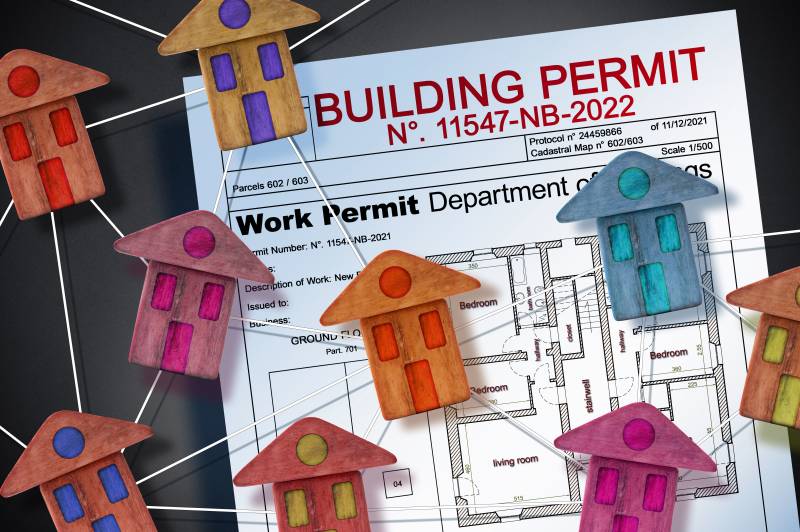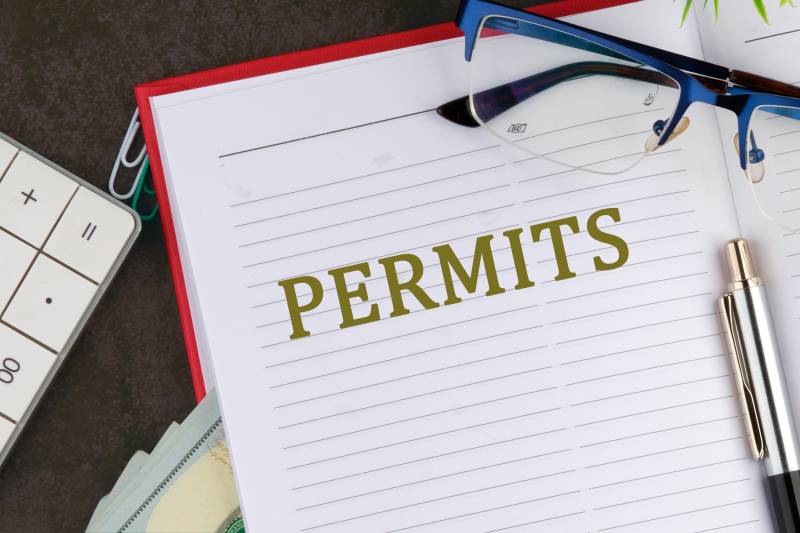Informational Insights – VA Loans Regarding Unpermitted and/or Non-Conforming Property Additions
A VA loan can potentially be made on a property with unpermitted additions or non-conforming areas, but it comes with challenges and conditions that must be addressed. Here’s how it works, what steps to take, and the concerns involved:
Key Considerations for VA Loans on Properties with Unpermitted Additions
1. VA Minimum Property Requirements (MPRs):
- VA loans require that the property meets MPRs, which ensure the home is safe, sanitary, and structurally sound.
- Unpermitted or non-conforming areas may not meet these requirements, leading to issues during the appraisal and underwriting process.

APPROVED BUILDINGS PERMIT CONCEPT with approved residential building project and home residential building model
2. Appraisal and Lender Scrutiny:
- A VA-approved appraiser will evaluate the property. If they note unpermitted additions or non-conforming areas, it could affect the property’s valuation or flag concerns about safety and compliance.
- The lender must be comfortable with the risk posed by unpermitted features.

Steps for Buyers and Sellers:
For Sellers:
- Disclose Unpermitted Work:
- Transparency is critical. Disclose any unpermitted additions to potential buyers and in the seller’s disclosure statement.
- Consider Bringing Additions into Compliance:
- Obtain permits and ensure the work meets local building codes. While this may involve costs, it can streamline the loan process and attract more buyers.
- Provide Documentation:
- Offer any available blueprints, plans, or records that demonstrate the quality and safety of the unpermitted work.

For Buyers:
- Consider Requesting An Appraisal Contingency:
- Possibly include an appraisal contingency in the offer to protect against issues arising from unpermitted additions.
- Consult with Your Lender:
- Discuss the specific property concerns with your VA loan officer. Some lenders are more flexible than others regarding unpermitted work.
- Negotiate Repairs or Compliance with the Seller:
- Negotiate for the seller to bring the property into compliance or offer credits to offset future permitting costs.
Concerns and Reasons Why a Loan Might Not Be Approved:
- Safety and Structural Integrity:
- If the unpermitted area raises safety concerns (e.g., faulty wiring, poor structural work), the VA may deny the loan.
- Impact on Appraisal Value:
- Unpermitted work might not be counted toward the home’s value, leading to a lower appraisal and potentially requiring the buyer to cover the difference in cash.
- Non-Conformance with Zoning:
- Non-conforming areas may violate zoning laws, further complicating the loan approval.
- Future Legal or Financial Risks:
- Lenders may hesitate if unpermitted additions pose risks of fines, penalties, or required demolition.
Final Thoughts:
A VA loan is possible on a property with unpermitted and or non-conforming additions, but it requires a proactive approach from both the buyer and seller. Ensuring the property meets MPRs and addressing lender concerns can help move the process forward. Consulting a VA loan specialist, an experienced real estate agent/broker, and possibly a contractor familiar with permitting will improve the likelihood of success.

Leave your opinion here. Please be nice. Your Email address will be kept private, this form is secure and we never spam you.